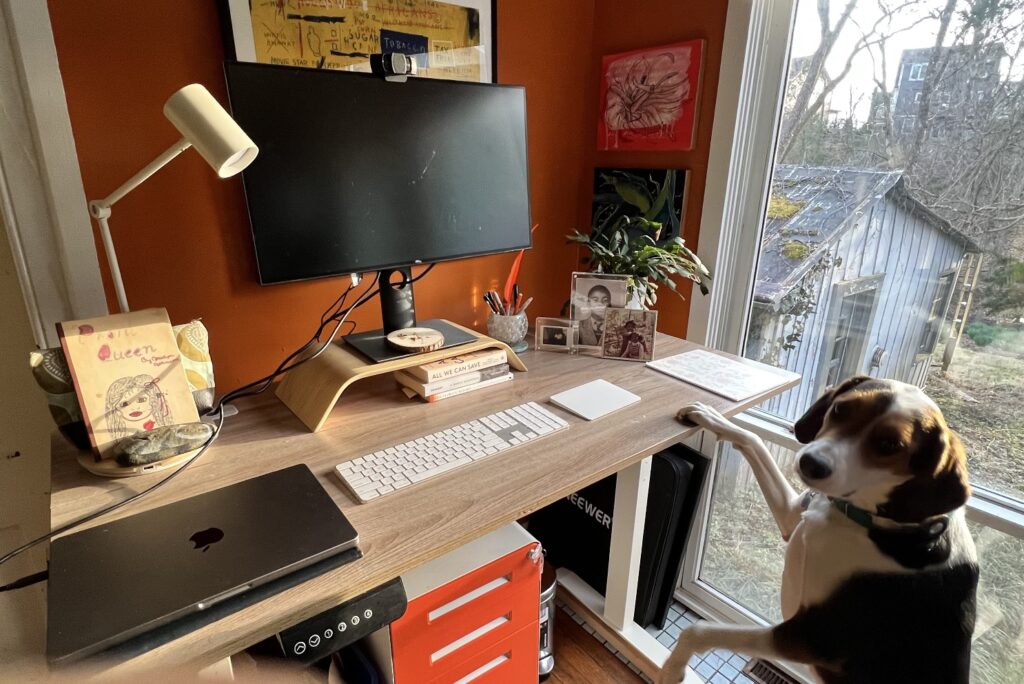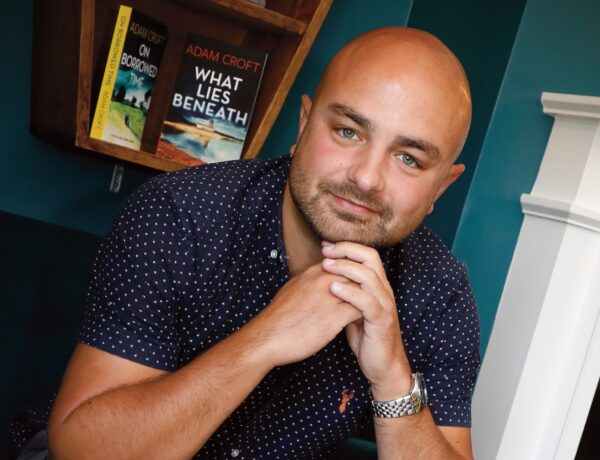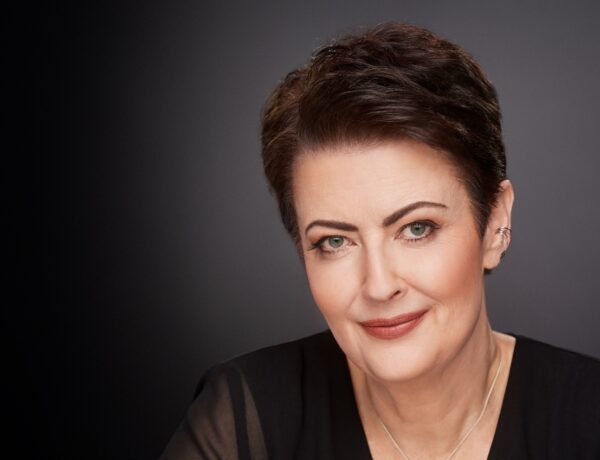Jocelyn Nicole Johnson is the author of My Monticello, a fiction debut that was called “a masterly feat” by the New York Times, and winner of the Library of Virginia Fiction Award, the Weatherford Award, the Balcones Fiction Prize, and the Lillian Smith Award, as well as a finalist for the Kirkus Fiction Prize, the National Book Critics Circle Leonard Award, the LA Times Debut Seidenbaum Prize, and long-listed for a Pen/Faulkner Fiction Award and the Story Prize.
My Monticello was also chosen as the Route 1 Reads for Virginia. Johnson has been a fellow at TinHouse, Hedgebrook, and the Virginia Center for the Creative Arts. Her writing has appeared in Guernica, The Guardian, Kweli Journal, Joyland, Lit Hub, and elsewhere.
Her short story “Control Negro” was anthologized in The Best American Short Stories, guest edited by Roxane Gay and read live by LeVar Burton. A veteran public school art teacher, Johnson lives and writes in Charlottesville, Virginia.
Looking for inspiration to help you achieve your writing goals? Subscribe to our newsletter for exclusive insights into the routines, habits, and techniques of some of the most celebrated authors in history.
Hi Jocelyn, welcome to Famous Writing Routines, great to have you here with us today! Your debut novel My Monticello has received numerous awards and accolades. Can you share with us your journey to publication and what inspired you to write this story?
After many years of striving, I launched my debut collection, My Monticello, into the world at the age of fifty. Over the previous fifteen years, I had two other projects go out on submission with two different agents, but ultimately, they were not published. And so it was a welcome surprise for this third project, with a third agent, to find a home, as well as much appreciated attention. The best part though was that strangers were reading and thinking about my stories, ones I’d imagined and typed up alone at my desk.
My Monticello was inspired by big and small happenings in my home state of Virginia. Control Negro, for example, began as a fictional response to a local, public act of violence enacted by uniformed officers on a Black University of Virginia student. The titular novella My Monticello came out of my experience of living in Charlottesville through the deadly “Unite the Right!” rally in August of 2017.
That violent spectacle left me trying to explain to my then 11-year-old son why people were marching in our city center carrying assault rifles and torches, shouting “White lives matter” and “into the ovens”, and claiming Thomas Jefferson’s statue on UVA’s grounds as their own. That piece of writing was an act of resistance, reclamation, and lowkey literary vengeance.
These stories were also inspired by closer or more joyful moments too, like noticing a bank of ornery swans at the edge of a corporate pond or imagining the small hilarious revolts of school children.
Your short story “Control Negro” was anthologized in The Best American Short Stories and read live by LeVar Burton. Can you tell us about the experience of having your work recognized in such a prominent way?
One of the most exciting moments of my writerly life was when a friend messaged me to tell me that literary luminary Roxane Gay had tweeted about my work. “Control Negro is one hell of a story!” she’d written. By luck, Gay guest edited The Best American Short Stories edition the following year and included this story in it.
Likewise, I was astounded to hear that LeVar Burton would read that same story, live, in New York, as part of Selected Shorts series, which runs on public radio. Roots, The Next Generation, Reading Rainbow: My Black-nerdy-teacher-self was over the moon! The care and generosity of such high-profile readers helped Control Negro find its readers and the collection find a publishing home.
You have been a fellow at prestigious writing residencies such as TinHouse, Hedgebrook, and the Virginia Center for the Creative Arts. Can you tell us about your experiences at these residencies and how they have impacted your writing?
Residencies can be magic, including smaller non-competitive ones. For me, they allow for time to write as well as community with other creatives, like sleepaway camp for adults. Often they lead to lasting connections.
Each residency has its own vibe: VCCA, for example, has a broad, rotating group of alumni which includes composers and visual artists. Hedgebrook, on the other hand, emphasizes nurturing women writers with their swank tiny-home cabins and chef-prepared meals (centering the bounty of their onsite garden). TinHouse was the first competitive residence I attended. Their summer workshops include craft talks, faculty readings, and more. Reading publicly during one TinHouse event led me to sign with my first agent.
Do you struggle to stay focused while writing? You’re not alone! That’s why Famous Writing Routines recommends Freedom – the ultimate app and website blocker for Mac, Windows, Android, iOS, and Chrome. With over 2.5 million users, Freedom helps writers stay on task and avoid distractions. Get started for free today and reclaim your productivity!
Your writing has appeared in a variety of publications, including Guernica, The Guardian, and Kweli Journal. How do you approach writing for different audiences and platforms?
Mostly I write the way I write and look for platforms that seem copacetic with a given story or essay, content and style-wise.
As a public school art teacher, how does your background in education influence your writing, particularly in terms of the themes and perspectives you explore in your work?
I taught visual arts in various Virginian public schools for 20 years, which put me in contact with thousands of students and their families. I can’t say for sure whether my education-related themes (like community-making or power and disenfranchisement) come up in my stories because I’ve spent so much time in schools, or if I’ve spent so much time in schools because I’m naturally drawn to themes like these. I do know that the rich experience of this work is central to my point-of-view.
What does a typical writing day look like for you?
As of late, I’ve been writing on weekday mornings through lunch, while my good/bad dogs, Bug and Bagels, are still sleepy and slow, and my family is away at school and work. These mornings, along with mini Airbnb retreats, are when I get words on the page.
If you could have a conversation with any artist throughout history about their creative process, who would that be and why?
I’m enthralled enough by creatives now, and am happy to listen to their stories of creation (from auditorium seats, through earbuds), in this time we share, which is endlessly influenced by the past, and might as well be a million different co-existing worlds.
I’d love to know about the books you’re reading at the moment. What have been some of your favorite recent reads?
I was struck by If I Survive You, by Jonathan Escoffery, an evocative collection of intersecting short stories of immigration and identity that brought to mind Junot Diaz’s Drown. Also, I was moved by Mecca Jamilah Sullivan’s novel, Big Girl, an engaging, beautifully-written coming of age story set in the gentrifying Harlem of the 1980s. Lastly, I really dug Now You Know It All, by Joanna Pearson, a collection of expertly crafted stories that center small-town North Carolina but veer off to unexpected places.
What does your current workspace look like?
My current workspace is an adjustable desk where I can sit or stand, tucked into the corner of our main living/dining area. To my left, I can look out a huge picture window into our sloped backyard. Sometimes an unbothered fox makes an appearance, setting the dogs into fierce barking. I’ve got a laptop, a monitor, various books, stacks of to-do lists, a few sweet photos, a framed Basquiat print, and an often-blooming Christmas cactus in view.

Affiliate disclaimer: Some links on this website are affiliate links. We may earn a small commission if you make a purchase through these links, but only promote products we truly believe in. We disclose affiliate links and give honest reviews.



No Comments